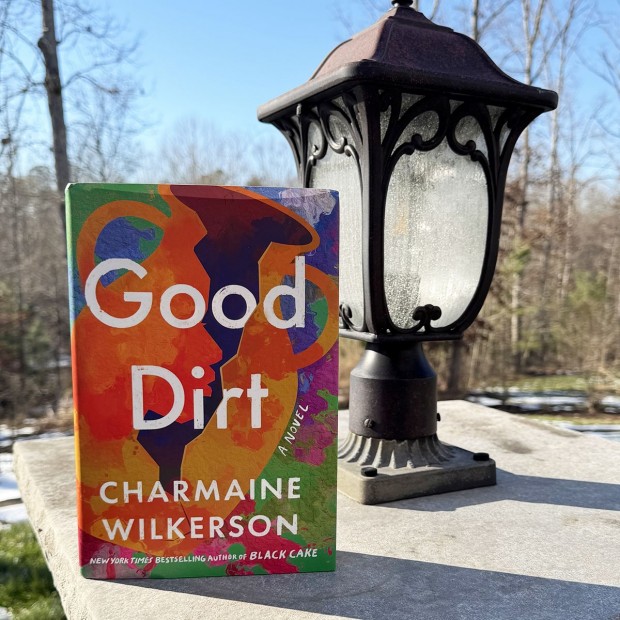Reads in Honor of Black History Month

In honor of February‘s Black History Month, I selected six wonderful books written by Black authors in a variety of genres: nonfiction, contemporary fiction, and historical fiction.
Here are six compelling books by Black authors:
Nonfiction:
Buses Are a Comin’: Memoir of a Freedom Rider by Charles Person and Richard Rooker - Buses Are a Comin’ should be required reading in the U.S. because this personal history of the Freedom Rides of 1961 is quite an amazing story. The bravery and strength of the individuals who participated in these rides to secure equal rights for all in the face of incredible opposition is awe inspiring. The fact that some people were so upset by integration that they would wait for buses to arrive just to torment and attack the riders is hard to fathom for most people today. The book provides the context for and the build up to the Freedom Rides and the clever strategies the riders eventually used to prevail in their mission to desegregate interstate buses. I partly read, partly listened to this one, and I highly recommend both. The audiobook is fantastic, and the book includes some amazing photos from the Freedom Rides.
Wandering in Strange Lands: A Daughter of the Great Migration Reclaims Her Roots by Morgan Jerkins – During the Great Migration, over six million Black people left their rural Southern homes seeking better economic prospects in the North, West and Midwest. Taking a personal approach to the effects of the Great Migration, Jerkins recreates the paths her ancestors took out of Georgia and South Carolina and studies the loss of familial knowledge and the impact on personal identity. Her premise provides a fresh and enthralling deep dive into one woman’s attempt to understand her roots and her family’s legacy. Thought-provoking and incisive, Wandering in Strange Lands is a timely tale. I listened to the audiobook, which Jerkins narrates.
Contemporary Fiction:
Good Dirt by Charmaine Wilkerson – Good Dirt is a novel rich in lore and history, weaving together the stories of the Freeman family ancestors and a stoneware jar that has been with the family for centuries with the current day narrative of Ebony "Ebby" Freeman, the main character. The Freemans are a prominent black family whose young son Baz was murdered, a crime that is still not solved years later. While the book jumps around in time a fair amount, I found it easy to follow and loved that each perspective contributed to explaining the significance of the jar as well as who killed Baz. This beautiful book will appeal to those who enjoy complex family dramas as well as character-driven tales focusing on family, trauma, loss, legacies, and love. Learning about the stoneware jars made by slaves is an added bonus.
What You Leave Behind by Wanda M. Morris – This engaging thriller follows a lawyer who returns to her hometown and finds herself caught up in the disappearance of a local resident whose sister recently died. She uncovers an issue that dates back to the Reconstruction era. I was unfamiliar with heir property rights until I read this book, and I am glad Morris is shining a light on this issue, which still exists in the U.S. today. Heir property refers to land that is passed between generations of family members without a will or formal estate plan and often impacts those on the lower end of the economic spectrum. Co-owners often have limited rights over the property, and a sale can be triggered when any co-owner wants to sell. In addition to the property issue, I enjoyed the ghostly perspectives and the low country setting.
Historical Fiction:
American Daughters by Piper Huguley – American Daughters charts the unlikely and secret friendship between Alice Roosevelt, President Teddy Roosevelt’s daughter, and Portia Washington, daughter of educator Booker T. Washington. When the two men developed a friendship, their daughters were unexpectedly brought together in 1901 and began a lifelong relationship that triumphed over race and politics. This relationship was kept under wraps due to the time period and drama that result from President Roosevelt’s and Booker T. Washington’s interactions with each other, but Huguley relies on both research about the two women individually as well as the time period to develop a story of what it would have looked like and how it would have impacted their views of what was happening with respect to race relations in the early 20th century. American Daughters is a timely read that will have readers thinking about what we all have in common versus focusing on our differences.
The Unexpected Diva by Tiffany L. Warren – Narrated in the first person, The Unexpected Diva is a fictionalized account of the life of Elizabeth Taylor Greenfield, a Black opera singer in pre-Civil War America. Raised in the safety of Pennsylvania’s Quaker community, her life drastically changes when her white adoptive mother dies and her family disputes Eliza’s inheritance and wins. Her extraordinary three-octave voice allows her to defy societal norms to pursue her dream of becoming a professional opera singer, gaining acclaim as “the Black Swan” in the United States and Europe. While the book’s main focus is Eliza’s story, it also depicts what it was like for Black citizens in pre-Civil War America, regardless of where they lived. Black patrons were often not allowed to attend Eliza’s concerts even in the North and, when they could, protestors were out in full force. Slave traders came from the southern states to trap slaves or other Black people who had fled the south – anyone who was Black (even free Blacks) could be grabbed by these traders and sold to plantations. Choosing to tell the story from Eliza’s perspective was effective, making the story feel deeply personal and allowing readers to glimpse how Eliza perceived her success and travails.
For more book recommendations and bookish thoughts, see Cindy’s monthly Buzz Reads column, her award-winning Thoughts from a Page Podcast or follow @ThoughtsFromaPage on Instagram.
Want more buzz like this? Sign up for our Morning Buzz emails.
To leave a comment, please log in or create an account with The Buzz Magazines, Disqus, Facebook, or Twitter. Or you may post as a guest.



